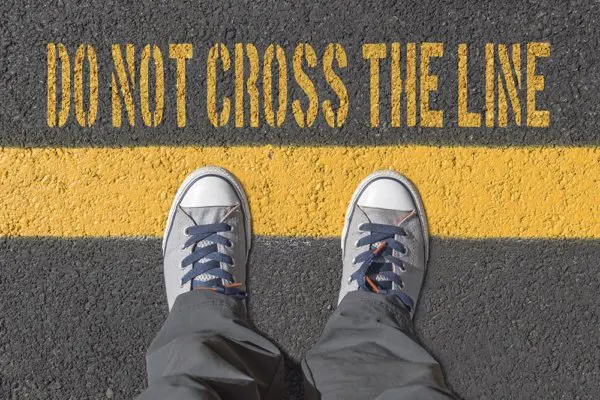How Do You Forgive an Addict?

Whether you live with an addict, a friend is addicted, or a close family member, you have likely been hurt by them. Addiction causes people to lie, cheat, steal, and manipulate to get money and leniency for their substance use, and this can be harmful to everyone around them. If you live with the addict as a spouse or close family member, this can be exacerbated by financial issues caused by substance abuse, missed responsibilities, and possibly verbal, emotional, or even physical abuse. Addiction is ugly, and if you live with an addict, it is difficult to even contemplate forgiving them.
If you’re wondering how you can forgive an addict, these 10 tips will help you to make the right decisions to move towards a place where you can be happy.
1. Evaluate – Should you forgive the addict in your life? If someone is actively seeking help, working towards forgiveness, and being honest towards you, they possibly deserve forgiveness. If they are actively continuing their lifestyle, refusing help, and continuing to use you for money, food, shelter, etc., they might not. However, while forgiveness is in part based on the addict, your primary reason for forgiving them is for you and for your own peace of mind. You can forgive someone and simultaneously cut them out of your life for your own mental health. Evaluate whether they are good for you, whether you can build a quality and stable life with them, and if they are actively working towards building a healthy relationship with you.
2. Talk – In most cases, you will have issues that are not worked out, problems that you must resolve, and answers that you need for peace of mind. Sit down, write down what you want to talk about, and have a talk with the addict in your life. If they can answer you honestly and agree to move towards a healthier lifestyle together, you can move towards forgiveness much more easily. However, it is important to avoid being angry or using guilt and blame during this kind of talk. Negative emotions only create negative emotions, and it may create an argument and may cause a recovering addict to relapse. Even if your anger is justified, try to remain calm, reasonable, and focused on the future. “I’m uncomfortable when you do X and would like you to stop”, rather than an accusatory “Why do you always do X?”. Or “I feel that if we can resolve X we can move forward” rather than a “You’re so selfish, you only think of yourself”. Deciding how to say things in a less negative light can help the other person to consider them rationally rather than getting angry about them. For example: “I want X from our relationship”, rather than “Don’t do that or I’ll leave”. Phrasing things gently, “I am still upset about X in the past and I know that’s in the past but I need time”, etc., allows you to communicate without starting a fight, so that you can actually talk to your loved one without hurting them. Your own problems and reasons will change depending on your situation, but it is important that you talk about them as non-judgmentally as possible.
3. Ask for Patience and Time – You won’t forgive anyone overnight. It’s also not your responsibility to forgive someone, even if they ask you to. If your addicted loved one is asking for forgiveness, explain that you need patience and time, or they won’t be forgiven. You can promise to actively work towards forgiving them, to practice letting go of anger, and to try to judge them by their current behavior, but forgiveness takes time.
4. Learn More About Addiction – Learning more about addiction can help you to understand the choices your loved one made and why those choices were made. It can also help you to forgive them, because you can understand why they acted the way they did. “Beyond Addiction: How Science and Kindness Help People Change” by Carrie Wilkens, Jeffrey Foote, and Nicole Kosanke and “Why Don’t They Just Quit” by Joe Herzanek are two resources you can use to learn more about addiction.
5. Don’t Blame Yourself – There is never a point in which a person’s addiction is your fault. Even if you make bad choices, deal with their mistakes and emotions badly, or react with anger when you should react with understanding, their addiction is not your fault. While codependency and enabling are each problems, you are not responsible for their addiction. They make their own choices. However, if you feel that you are playing a part in enabling their addiction, it is important that you seek help. There are numerous therapists and groups dedicated to helping codependents and to helping family members move away from enabling behavior.

6. Establish Boundaries – Forgiveness is not letting an addict get away with anything, it is not ignoring their past behavior, it is not creating a clean slate, and it is not about suppressing your emotions or eliminating the consequences of their actions. You are likely rightfully hurt, emotionally damaged, and angry over their behavior, and they have to recognize that, give you space, and respect your boundaries. Decide when to say no, and stick to it.
7. Demand Honesty – It is impossible to build a healthy relationship without honesty. Demand truthfulness and transparency as part of your future relationship. While you may feel that it is your responsibility to forgive them so that they can move forward, it is important that they demonstrate their willingness to commit to you. If they cannot be honest, you likely do not need the relationship.
8. Let Go – Letting go of past wrongs and anger can be difficult, but it is important for you and your peace of mind. While letting go is different for everyone, you can start by acknowledging the problem, reaching closure if you can, and talking about it. Many people also benefit from writing down why they are angry, and then listing the benefits of remaining angry about it. While it’s okay to remember something so that you don’t get hurt again, staying angry about things that happened in the past make it difficult to establish a relationship, no matter how much the other person is trying.
9. Get Help – There are multiple groups like Al-Anon which are designed to help the friends and family of recovering addicts. These groups allow you to talk about your problems, discuss behavior, and access information and resources to learn about addiction and recovery. You may also choose to go to a therapist or to a program hosted by a rehabilitation clinic.
10. A Day-by-Day Basis – If you can move forward with an attitude of detachment, where you judge the addict in your life based on their behavior each day, without expectations, you can move forward. By refusing to invest in them emotionally until they have proven that they are working towards their recovery, you can avoid unnecessary feelings of anger and resentment, because you stop expecting things from them.
If you are living with an addict, it is important that they get help. Addiction treatment can help anyone to overcome a substance abuse disorder so that they can get back to their lives, and to their relationships. If you’re living with a recovering addict, it is important to give them space, establish your own boundaries, and hold them accountable for their actions, to ensure that they stay clean or sober.
If you or your loved one is currently experiencing a problem with addiction to drugs or alcohol, don’t wait until it’s too late. Please Contact Beginnings Treatment Centers now to speak with one of our experienced intake advisors. There is no obligation or cost for the initial consultation, and quick action might save your life or that of your loved one.

